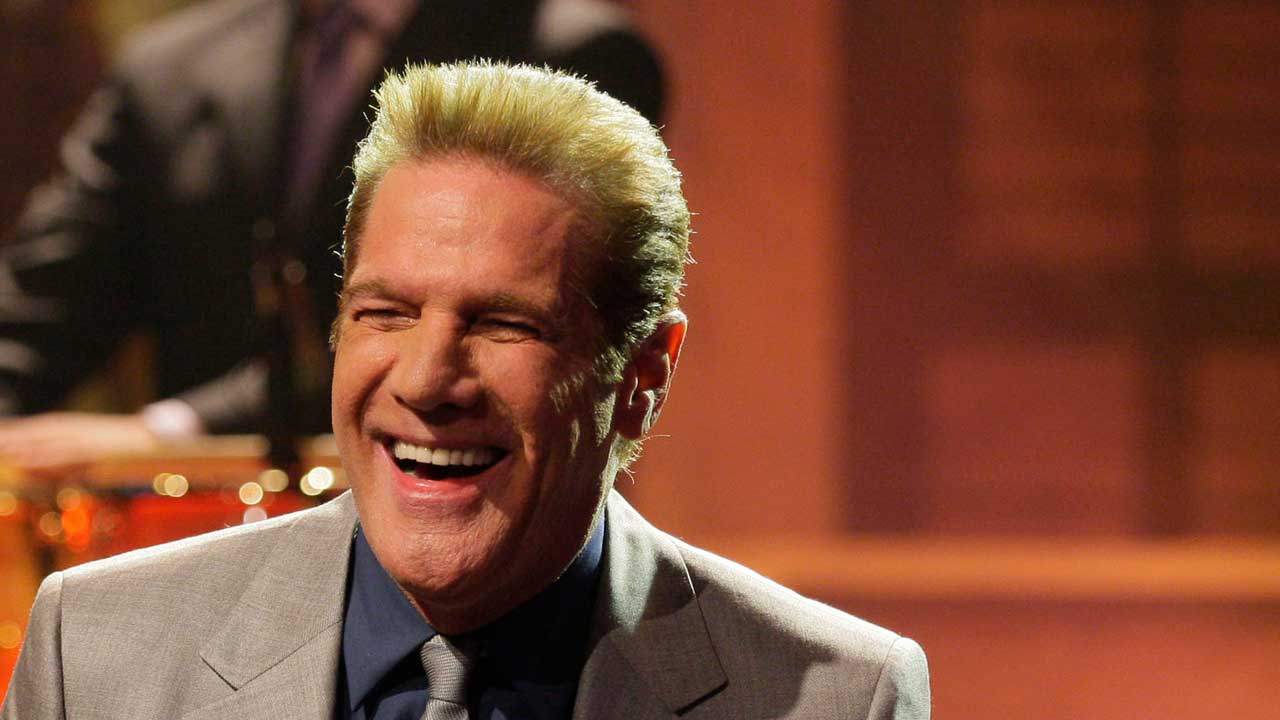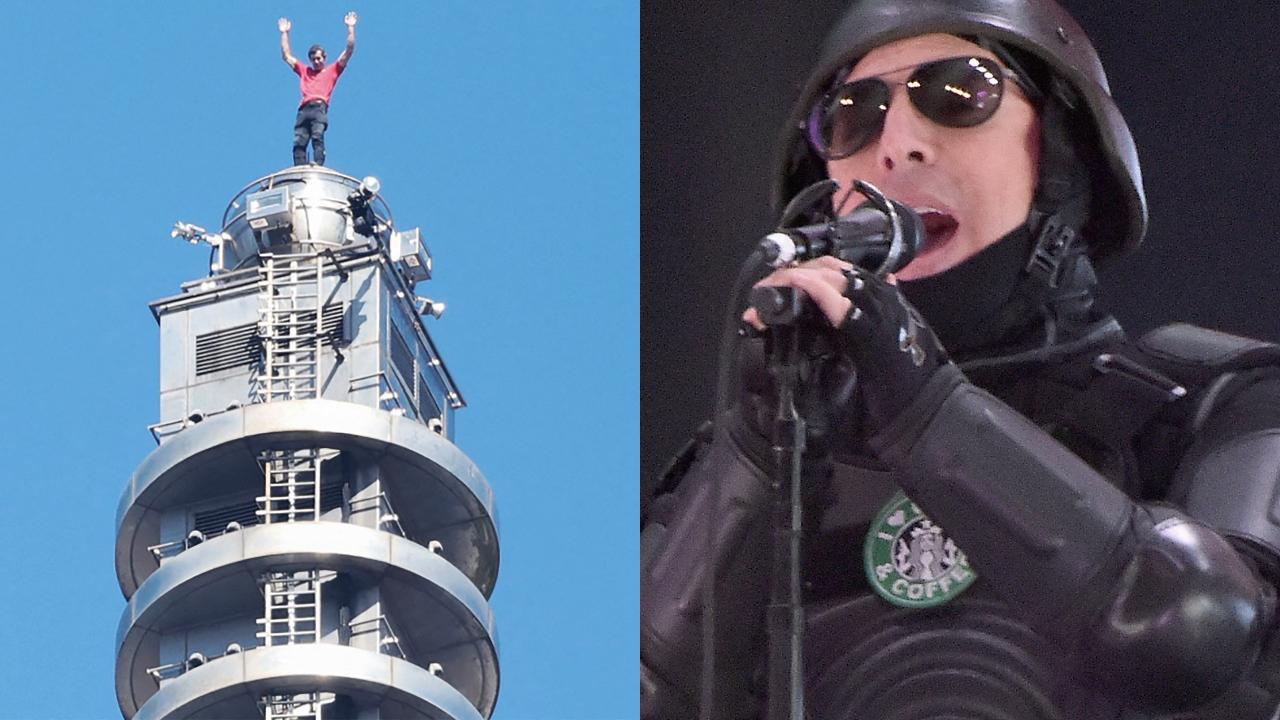"Music is like skiing - you don’t have to go down the black runs with the hairiest turns to get the thrill": An interview with late Eagles founder Glenn Frey
Glenn Frey on The Eagles, Lear jets, nice hotels, police escorts, sold-out stadiums, women, drugs, family, and aging in an age-appropriate manner

Born in Detroit on November 6, 1948, the late Glenn Frey was drawn to rock’n’roll after seeing The Beatles on TV,. He co-founded The Eagles in 1970 and went on to enjoy huge success throughout the seventies and beyond. In 2012 he released a supremely chilled album of standards, After Hours, tackling classic ballads from the American Songbook with aplomb, and he spoke with Classic Rock.
By any standards, Glenn Frey has lived a rich and full life. His band, the Eagles, are the biggest-selling US band in history, he’s scored Top 10 hits on both sides of the Atlantic as a solo artist and he’s received rave notices for his acting roles in successful films and TV shows (Miami Vice, Jerry Maguire, Nash Bridges). Fleetwood Mac’s Stevie Nicks once hailed him as the Errol Flynn of the 1970s. To film director Cameron Crowe – a longtime friend – Frey is “the coolest rock star I ever met”.
“Some people think Glenn Frey is a cool guy, and some people think Glenn Frey is full of shit,” he laughs. “But when it comes to music, I’ve always cared."

The Christian website Jesus-is-savior.com quotes you as saying, “I’m in rock music for the sex and narcotics.” Is that something you might have said?
I remember the actual interview. Someone once said to me: “You should never lie, unless the person you’re talking to doesn’t deserve the truth.” And that’s what happened in that interview. I didn’t really want to tell the woman who asked me the question why I was in the music business. So I just looked at her deadpan and said: ‘Well, I’m in it for sex and narcotics.’ I said it very tongue-in-cheek, but in print readers can’t see the twinkle in your eye. And so now I’m on a Christian website and I’m Satan.
Cameron Crowe has said the character of guitarist Russell Hammond in his film Almost Famous was based on you. Did you recognise yourself in the character?
I smiled the whole time I watched Almost Famous. I think it’s a very tender and human movie. And yeah, I did see a little bit of myself in there. But I knew about that in advance because Cameron called me while he was making the movie.
Sign up below to get the latest from Classic Rock, plus exclusive special offers, direct to your inbox!
Do you have the inclination to return to the acting world?
Not really. All the jobs I ever had in television or film were because someone called and asked for me. So unless someone comes calling, I’m happy to stick with what I know best.
What’s the biggest lesson that being in the rock’n’roll business has taught you?
Music was a good choice for me. You don’t have to be the biggest rock star in America to enjoy playing music. It’s like skiing – you don’t have to go down the black runs with the hairiest turns to get the thrill. I’ve never been unhappy playing music. So that’s my lesson: that there’s joy in music at all levels.
Are you growing older gracefully?
I believe in age-appropriate behaviour. All the time I spent partying in the Eagles in the late 70s didn’t seem so strange to me because everybody was doing the same things. But it’d look awfully stupid of me now to still be acting like I did when I was 28. I have a family now, and that’s a very sobering job. The Eagles was an unreal world, with Lear jets, nice hotels, police escorts, sold-out stadiums, women, drugs. That’s not the real world I live in now.
What was your career low point?
There was a point in the mid-80s where I took a look at myself – not so much my career as my life in general – and thought: ‘Hmmm, I’m really not doing too well.’ I was looking at a failed marriage, and drug and alcohol problems. And so I thought I’d better change the way I was living. It wasn’t a dramatic, ‘drop down on my knees then walk into AA with a toothbrush’ moment, just a quiet decision and determination to change.
What was your biggest waste of money?
Aside from my first marriage, I would say getting into the horse racing business. Nothing good came of that. That’s a rich man’s game, and my pockets weren’t deep enough.
What are the best and worst drugs you’ve ever taken?
The best is probably marijuana and the worst is cocaine. Let’s leave it at that.
What drives the Eagles on in 2012?
The idea that we can still do things that we’ve never done before. For instance, in recent years we’ve tried to play places we’ve never played, so we’ve visited South Africa, China, Taiwan, Iceland, Dubai…
What’s the meaning of life?
Well, it’s certainly not about fame or making money or American Idol. James Taylor isn’t too far off when he said the secret of life is enjoying the passage of time. And it’s about doing good things for other people. That’s what makes you feel the best.
What would you like written on your tombstone?
‘He rocked!’ Or maybe just ‘It’s your world now’.
This interview originally appeared in Classic Rock 179, in January 2013.

A music writer since 1993, formerly Editor of Kerrang! and Planet Rock magazine (RIP), Paul Brannigan is a Contributing Editor to Louder. Having previously written books on Lemmy, Dave Grohl (the Sunday Times best-seller This Is A Call) and Metallica (Birth School Metallica Death, co-authored with Ian Winwood), his Eddie Van Halen biography (Eruption in the UK, Unchained in the US) emerged in 2021. He has written for Rolling Stone, Mojo and Q, hung out with Fugazi at Dischord House, flown on Ozzy Osbourne's private jet, played Angus Young's Gibson SG, and interviewed everyone from Aerosmith and Beastie Boys to Young Gods and ZZ Top. Born in the North of Ireland, Brannigan lives in North London and supports The Arsenal.
